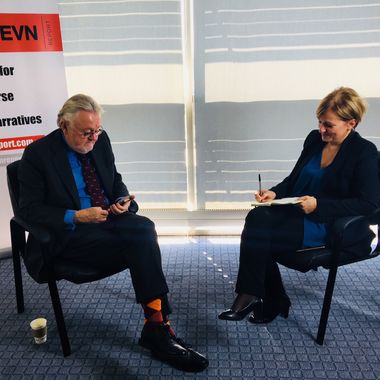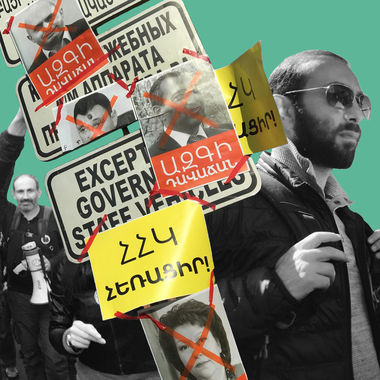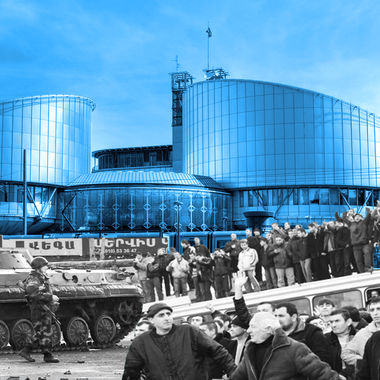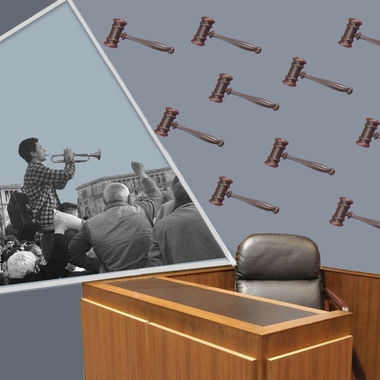Regime change in Armenia took place following nationwide protests that came to be known as the Velvet Revolution in Arpil- May, 2018.
During a large rally in Yerevan marking his 100th day in office (August 17, 2018), Prime Minister Pashinyan declared the need for transitional justice in Armenia.
In the year that has followed since the Velvet Revolution, several high-profile corruption and abuse of power cases have been revealed, putting past injustices back on the agenda. Lingering questions remain whether the current judicial system can properly deal with these cases.
What is Transitional Justice?
“ Transitional justice refers to the ways countries emerging from periods of conflict and repression address large-scale or systematic human rights violations and corruption so numerous and so serious that a regular justice system will not be able to provide an adequate response. ”
International Center for Transitional Justice
Over the last several months, EVN Report has spoken with experts, academics and lawmakers about the different models, possible applications and tools of transitional justice.
video
Understanding Transitional Justice
By Maria Titizian
Professor William Schabas, considered the world expert on the law of genocide and international law, sat down with EVN Report's Maria Titizian to discuss the concept of transitional justice and its possible application in Armenia. The symposium was organized by the Zoryan Institute of Canada in collaboration with the American University of Armenia.
podcasts
Dr. Nerses Kopalyan puts the criminal case against Gagik Tsarukyan, leader of the opposition Prosperous Armenia Party into context and says that knowing the scope and depth of the case against him was serious, Tsarukyan went on the offensive by attacking the government so that once charges were filed, he could claim political persecution.
Author of EVN Report's White Paper "Transitional Justice Agenda for the Republic of Armenia," Dr. Nerses Kopalyan speaks about the imperative of transitional justice to help heal Armenian society and restore trust and faith in institutions.
Professor William Schabas, an international human rights and criminal law expert said that he's usually in Armenia to talk about the past, the genocide, and justice for genocide. This time, he noted that he is here to to talk about the future because transitional justice is for the victims to see that justice is done, but it’s also about building something new.
Transitional justice involves four components - justice, truth, reparations and institutional reforms. Dr. Nadia Bernaz looks at the past and current examples of transitional justice processes that have tried to deal with corporate responsibility and the human rights impact of corruption and white collar crimes.
For young countries the challenge is often state-building and nation-building. In implementing transitional justice, there also has to be a strong element of vigilance and prioritization paired with a stong vision of transition by the leadership, according to Barney Afako, Esq. Listen to Afako's full address delivered during the transitional justice symposium in Yerevan.
During the transitional justice symposium in Yerevan, Marieke Wierda, Esq. elaborated on some of the reasons that countries have embarked on transitional justice processes and the fact that transitional justice should seek to reconstruct the social contract between citizens and state and among citizens themselves.
interviews
Ararat Mirzoyan on Snap Elections, Electoral Code Reforms and Transitional Justice
Vahe Grigoryan on the Events of
March 1, a Dysfunctional Judiciary and Transitional Justice
opinion







